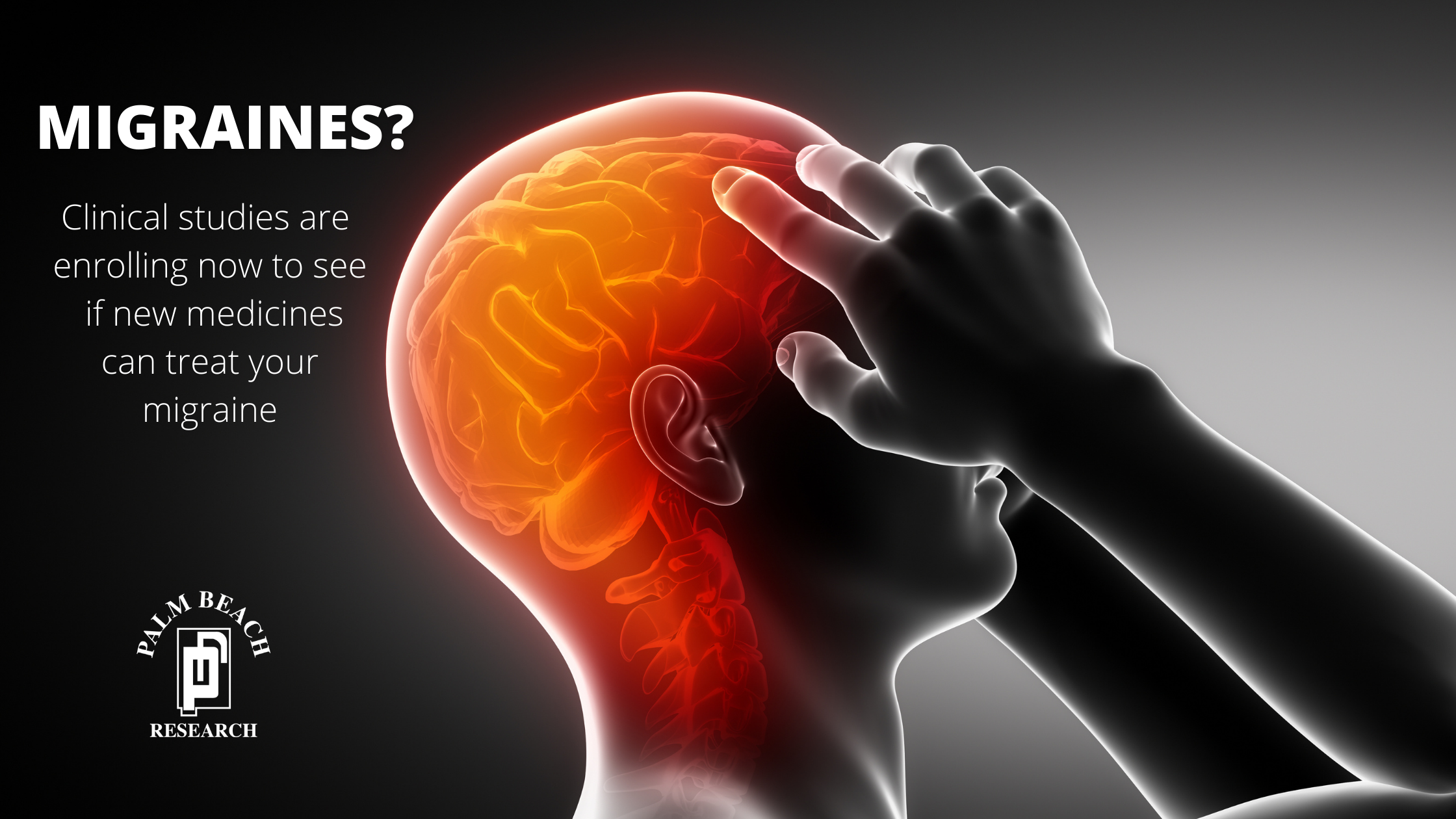
Dealing with Migraine Attacks? Symptoms, Triggers and Therapies
Are you dealing with Migraine Attacks? Clinical trials are enrolling patients to see if investigational treatments may be able to control and even eliminate migraines all together.
Migraines are severe headaches that can typically last between 4 and 72 hours. Some sufferers experience nausea and vomiting and may be sensitive to light. Chronic migraine is common and very painful, and you may want to enroll in a migraine clinical study trial.
OTHER SYMPTOMS
When experiencing migraine onset, some people experience an aura of flashing lights or changes to the vision. Sometimes these symptoms occur just as the migraine starts, and can be quite distressing. The doctor will discuss the symptoms with you to determine if you are suitable for the trial. The start of migraine is thought to be caused by chemical or blood flow changes in the brain. There may also be a hereditary component.
WHAT TRIGGERS A MIGRAINE?
* Certain foods like chocolate and red wine
* Altered sleep
* Changes in the weather
* Hormonal fluctuations
* Missing meals
MANAGING A MIGRAINE
Chronic migraine becomes an issue for many people, who have to take time off work and rest in a cool dark room until the symptoms subside. There is a wide range of medicines available to treat the condition and some preventative medicines work, while for others nothing works.
Lifestyle changes can also help to manage the condition.
* Get regular daily exercise
* Acupuncture may work for some
* Try mindfulness or relaxation therapy
* Avoid triggers like red wine and chocolate
HOW IS MIGRAINE DIAGNOSED
If you have regular migraines, keep a diary about them to better understand when they might occur. There are no specific diagnostic tests, but you may find that you are suitable for a migraine clinical study. Some tests may be done to exclude other causes of headaches.
If the migraines occur regularly they can disrupt normal activities of day-to-day living, and you will need to tell your doctor about them to decide what should be done. For some, they occur for a few years and then subside, and these may be linked to hormonal fluctuations. While for others, they are a lifelong problem.
TARGETED THERAPIES
New medications have been developed to target a specific protein called CGRP or calcitonin gene-related peptide. Antibodies that target CGRP can help reduce the instances of migraine that a person regularly suffers.
Triptans are also used, and they work by binding to the serotonin receptors in the body leading to pain-relieving effects. An alternative to triptans is being tested and a related class of medication called 5-HT1F receptor agonists leading to a drug called lasmiditan has been developed.
Lasmiditan may help to relieve the symptoms of headaches and migraine. Studies are currently being conducted and so far look promising.
Certain types of brain stimulation may also help to reduce the frequency of migraine. Transcutaneous Direct Current Stimulation has been found, in a study, to reduce the intensity of migraine symptoms. Further research into this subject is needed.
CONCLUSION
Many people suffering from chronic migraine symptoms will benefit from taking part in a migraine clinical study to reap the benefits of the latest research, and hopefully, find an answer to their migraine questions. Palm Beach Research is currently conducting studies to treat migraines and you could participate. Give us a call (561) 689-0606 to see if you qualify.
Related Posts
Subscribe to Hear About New Trials First
Subscribe to Hear About New Trials First
Subscribe to our newsletter by adding your email and keep up to date with the new studies we are offering as well as study results and more.








